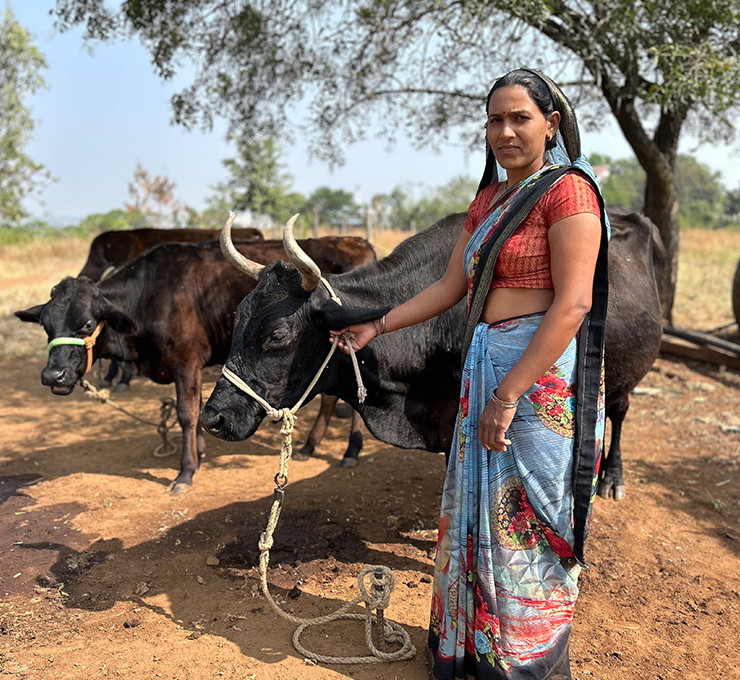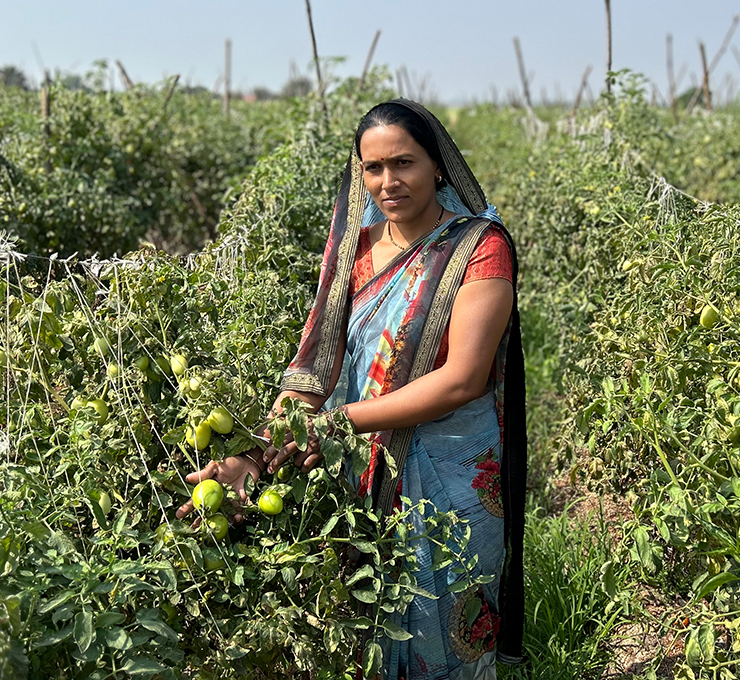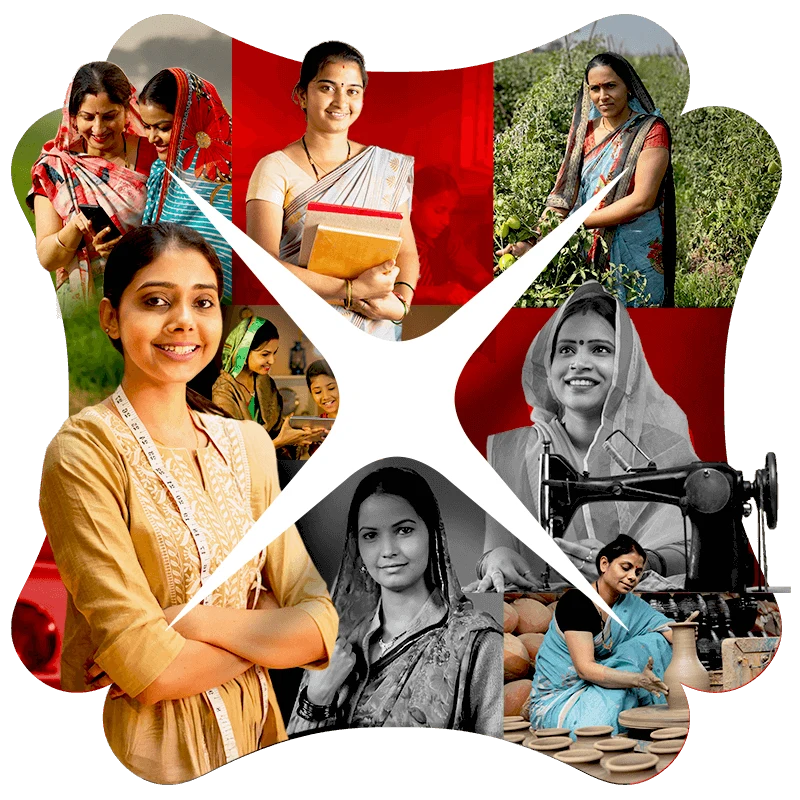About the report
The current study, conducted by Haqdarshak, surveyed 411 women entrepreneurs across rural districts in Madhya Pradesh, Maharashtra, and Rajasthan, with 402 being members of Self-Help Groups (SHGs).
This was supplemented by qualitative insights from five focus group discussions (FGDs), providing a nuanced understanding of their experiences.
Highlights

of rural women entrepreneurs in India consistently save a portion of their monthly income.

Among those who save, opt for bank deposits, while 39% participate in SHG savings programmes.

use digital banking services for their businesses. Among these digital users, 70% rely solely on UPI for business transactions.

of respondents make financial decisions independently, while 47% make them jointly with their husbands.

To expand their businesses, rural entrepreneurs seek support from industry and government , assistance with digitisation (39%), business mentorship 35%, and networking opportunities 33%
Case Study

Lending to small and marginal female farmers is a priority area for DBS Bank India (DBIL). To further this agenda, DBS has partnered with the top fifteen microfinance institutions (MFIs) in India to provide income-generating agricultural loans to women entrepreneurs in rural areas. These MFIs, with their extensive regional networks, facilitate last-mile credit delivery for farming and allied activities such as dairies, goateries, and fisheries. CreditAccess Grameen, India’s largest MFI, has been a key partner in advancing DBS Bank India's sustainable and priority sector lending initiatives.

Swati, a small-scale farmer from Pimparkhed village, faced challenges in expanding her agricultural operations due to lack of surplus income and limited access to formal credit. She aspired to start a dairy business and grow cash crops, but lacked the capital and guidance to do so. Through CreditAccess Grameen’s outreach in her village, Swati joined a Joint Liability Group (JLG) with other women farmers and availed a term loan of S$1,700. With this support, she successfully set up a dairy farm and began cultivating high-value vegetables. Her enhanced income has enabled her family to meet new expenses and significantly improved their financial stability.
